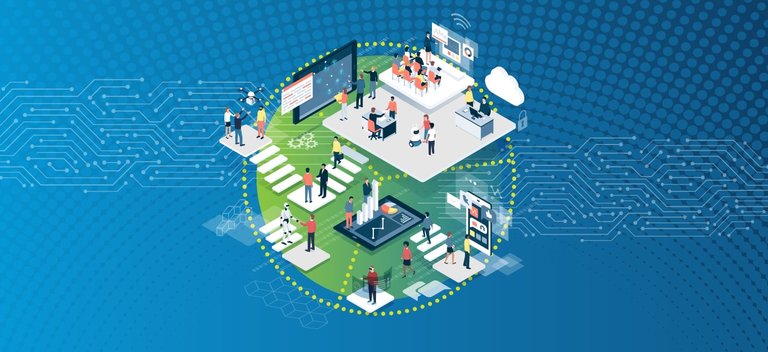The Gig Economy and the Future of Workforce Diversity: Embracing Inclusion in the Tech-Driven World

image
The future of work is rapidly changing in a tech-driven world, and the gig economy is playing a major role in this shift. The gig economy refers to the growing trend of people working in short-term, flexible, and independent jobs, rather than traditional full-time employment. With the rise of technology and the increasing demand for flexibility, the gig economy is becoming a more common way of working and is shaping the future of work.
Advantages of the Gig Economy
The gig economy offers a range of advantages for workers, including greater flexibility and control over their work schedules. With the ability to choose when and where they work, gig workers can better balance their work and personal life. This is particularly beneficial for those with family commitments or other responsibilities that may conflict with a traditional 9-5 work schedule.
The gig economy also offers opportunities for workers to develop new skills and pursue new careers. With access to a wider range of job opportunities, gig workers can broaden their skill set and expand their professional networks. This can lead to new career opportunities and increased job security.
Additionally, the gig economy provides greater economic opportunities for workers, especially those in less developed regions. With the ability to work from anywhere with an internet connection, gig workers can participate in the global economy, access new markets, and increase their earning potential.
Drawbacks of the Gig Economy
Despite its advantages, the gig economy also has its drawbacks. One of the main concerns is the lack of job security and benefits that traditional full-time employment provides. Gig workers often lack the stability and security of a regular income and may not have access to benefits such as health insurance, paid leave, and retirement benefits.
Another drawback is the potential for exploitation by gig economy companies. Gig workers may be paid lower wages and may not have the same protections and rights as traditional employees. This can lead to a lack of job satisfaction and a negative impact on overall well-being.

image
The Future of Work in a Tech-Driven World
The future of work is rapidly changing as technology continues to shape the global economy. In a tech-driven world, we are likely to see significant shifts in the way that work is performed and organized, as well as the types of jobs that are available. One major trend that is expected to shape the future of work is the rise of automation and artificial intelligence (AI). Automation and AI technologies are rapidly advancing and are expected to replace many traditional jobs, particularly in industries such as manufacturing, transportation, and customer service. While this may lead to job losses in the short-term, it also has the potential to increase productivity, create new and more innovative jobs, and improve overall economic growth in the long-term.
Another trend that is shaping the future of work is the gig economy, which refers to the growing trend of short-term, freelance, and flexible work arrangements. The gig economy is being fueled by the increasing availability of online platforms and tools that make it easier for people to connect with work opportunities and manage their work on their own terms. In a tech-driven world, the gig economy is likely to continue growing, offering more people the flexibility and autonomy to work when and where they want.
However, the gig economy also presents some challenges and risks, such as a lack of job security, benefits, and protections for workers. It is important for governments and companies to address these challenges and ensure that workers in the gig economy have access to the same rights and protections as traditional employees.
The rise of remote work is also shaping the future of work in a tech-driven world. With the increasing availability of cloud-based tools and communication technologies, it is becoming easier for people to work from anywhere, at any time. This is leading to a more flexible and decentralized workforce, where people can work from home, from a coffee shop, or from anywhere else that suits their needs.
To succeed in a tech-driven world, it is important for workers to have the right skills and training. This may involve upskilling and reskilling to stay competitive in a rapidly changing job market, as well as staying informed about the latest technological developments and trends.
!LOL
lolztoken.com
He was a terrible conductor.
Credit: reddit
@valchiz, I sent you an $LOLZ on behalf of @holovision.cash
Are You Ready for some $FUN? Learn about LOLZ's new FUN tribe!
(5/10)